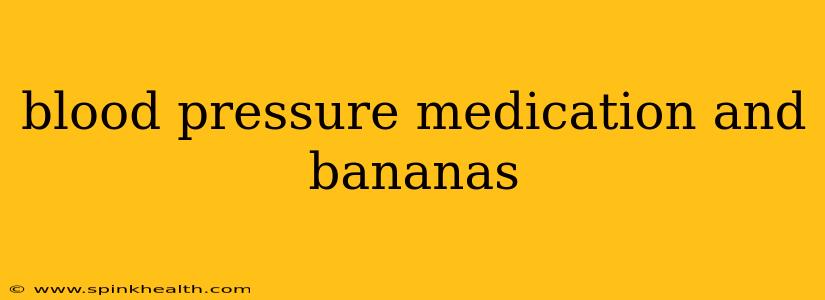For years, the relationship between blood pressure medication and bananas has been a source of confusion and concern for many. The potassium content in bananas is often cited as the potential culprit, leading to questions about whether these naturally sweet treats are safe for individuals on hypertension medication. Let's unravel this dietary dilemma and explore the facts, dispelling myths and providing clarity.
My name is Dr. Evelyn Reed, and for over 20 years I've specialized in cardiology and hypertension management. I've seen firsthand the impact of diet on blood pressure, and the anxieties surrounding seemingly simple foods like bananas. In this post, we will uncover the truth about the interaction between blood pressure medications and banana consumption.
Can you eat bananas if you are on blood pressure medication?
The short answer is: usually, yes. While it’s true that bananas are rich in potassium, this isn't an automatic red flag for everyone on blood pressure medication. The concern arises because some medications, particularly certain diuretics (water pills) and ACE inhibitors, can affect how your kidneys handle potassium. In some cases, this can lead to a build-up of potassium in the blood (hyperkalemia), which can be dangerous. However, for most people, the potassium in a banana or two is unlikely to cause problems.
What are the risks of eating bananas while on blood pressure medication?
The primary risk associated with eating bananas while on blood pressure medication is hyperkalemia – an elevated level of potassium in the blood. This is more likely to occur in individuals with pre-existing kidney problems or those taking medications that can interfere with potassium regulation. Symptoms of hyperkalemia can range from mild (muscle weakness, fatigue) to severe (irregular heartbeat, cardiac arrest).
What blood pressure medications interact with bananas?
Certain medications, especially some diuretics (like spironolactone and amiloride) and ACE inhibitors (like lisinopril and ramipril), can increase the risk of hyperkalemia when combined with a high potassium intake. These medications already work to conserve potassium, so adding significant amounts from dietary sources could tip the balance.
How much potassium is too much?
The recommended daily intake of potassium is generally around 4,700 milligrams. A medium-sized banana contains approximately 422 milligrams of potassium. While this might seem significant, it’s important to remember that potassium comes from many sources in a balanced diet. Excessive potassium intake usually requires consuming several bananas in a single day alongside other potassium-rich foods, and even then, this may not cause significant problems for healthy individuals not on specific medications.
Does everyone on blood pressure medication need to avoid bananas?
Absolutely not. The majority of individuals on blood pressure medication can safely enjoy bananas as part of a balanced diet. However, the key is moderation and communication with your doctor. Your physician can help assess your individual risk factors, considering your medication regimen, kidney function, and overall diet.
How can I safely eat bananas while on blood pressure medication?
The safest approach involves open communication with your healthcare provider. They can help you determine an appropriate potassium intake based on your specific circumstances. It's also helpful to maintain a varied and balanced diet, avoiding excessive consumption of potassium-rich foods. Regular blood tests can monitor your potassium levels and help ensure your health.
Conclusion:
The relationship between blood pressure medication and bananas isn't a simple yes or no. For most people, a few bananas a week pose no significant risk. However, it's crucial to have an open dialogue with your doctor, especially if you have kidney issues or are taking medications that can influence potassium levels. By working with your healthcare provider, you can enjoy the benefits of a healthy diet while effectively managing your blood pressure. Remember, a balanced approach is key, encompassing both medication and a mindful dietary plan.

